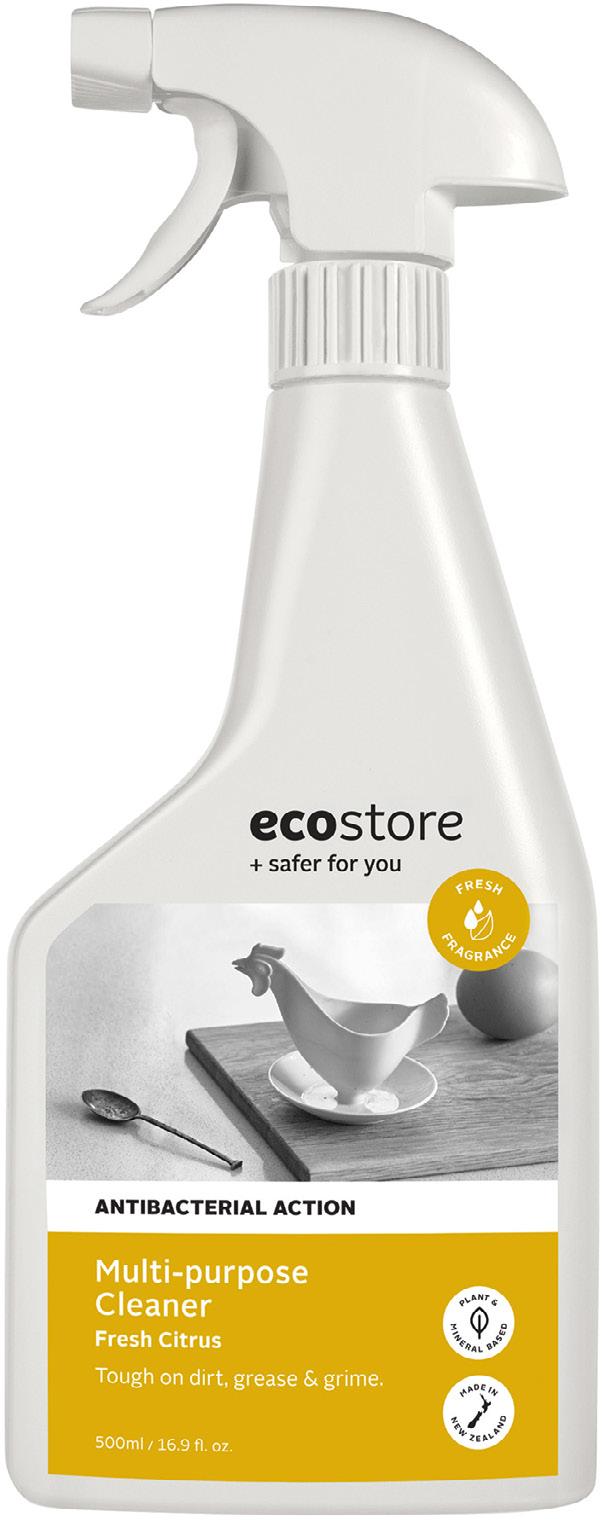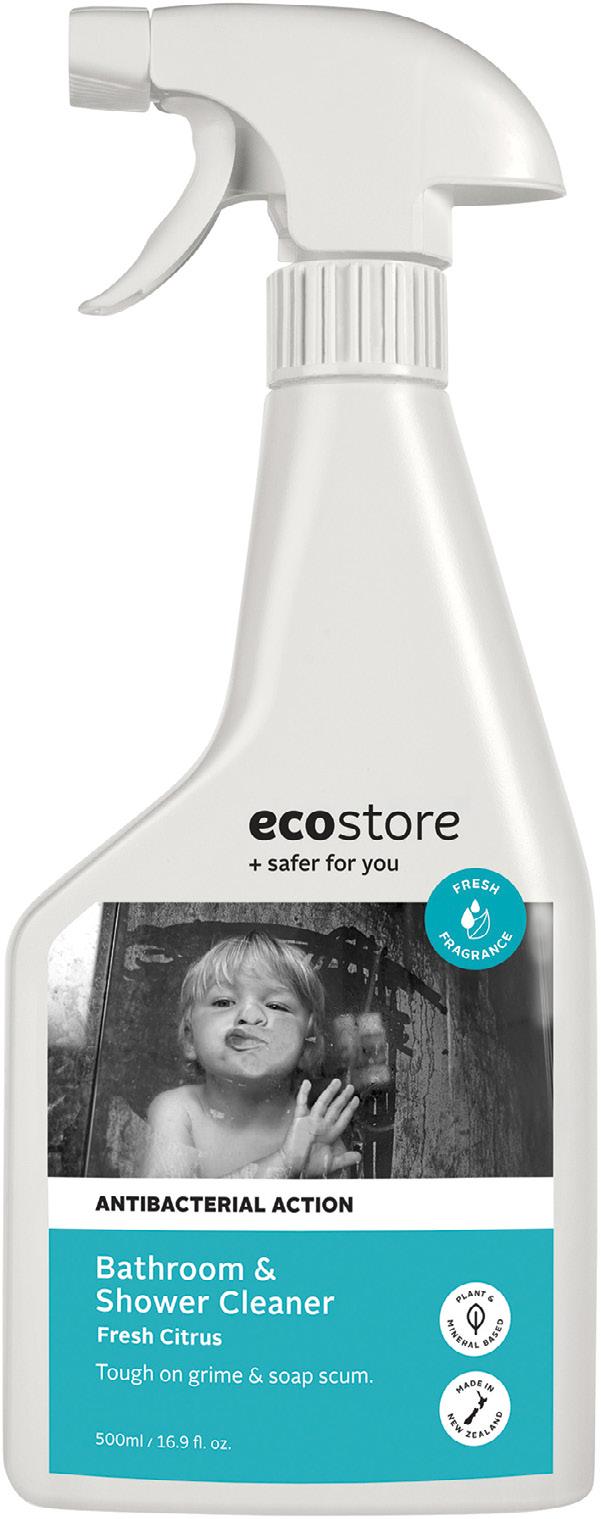
3 minute read
AISLE SPY
Image: Dr Michelle Dickinson
What’s trending in the cleaning and home care aisles in our supermarkets?
We asked the Foodstuffs team to share some insights from their stores: “Cleaning remains a highly planned purchase, closely tied to household routines and ingrained habits. Post-pandemic hygiene behaviours have become part of the new normal, with efficacy and fragrance continuing to be key drivers of purchase. Fragrance, in particular, offers emotional appeal and can influence impulse buys.
“As people look to simplify their routines, we’re seeing a shift towards fewer, more efficient multipurpose products. Eco-friendly and wellness-focused options still hold strong appeal, although rising living costs are causing some shoppers to reassess priorities. In this value-conscious environment, there’s growing demand for products that balance performance with price. One of the key challenges ahead is engaging younger customers, who remain underrepresented in the category,” says the team.
ecostore partners with Dr Michelle Dickinson
Recently, ecostore partnered with Dr Michelle Dickinson to explore the link between cleaning products and VOCs. VOCs are tiny molecules released into the atmosphere through various products and processes, and the nastier ones can leave you with irritated eyes, a headache, a sore throat or even worse; an asthma episode.
Angelina Ashcroft, Head of Marketing at ecostore says, “Home cleaning products are a major culprit when it comes to releasing VOCs into the air in your home. We asked Dr Michelle to take a closer look at how different household cleaners impact air quality, and what to look out for when choosing a household cleaner.”
VOCs take a while to disappear from the air
“VOCs don’t just disappear when you are finished cleaning,” says Ashcroft. “During the experiments to test the VOC levels of different bathroom cleaners, Dr Michelle found that it took hours for VOCs to fully dissipate.”
Households might be exposed to potentially harmful toxins in the air after cleaning, particularly in smaller, enclosed spaces like the shower, and if the products have high VOC levels.
There are some surprising gasses floating around our homes. Some cleaning products create formaldehyde when they react with the air. Not all products contain this potentially harmful ingredient, but if cleaning in an enclosed space irritates your respiratory system, this could be why.
VOCs are only worrying at high levels
Even plant and mineral-based products may create a small amount of VOCs, due to their naturallyderived fragrances. As long as the VOC levels are low, this isn’t a problem for most people.
“However, those with sensitivities like allergies, asthma or eczema might prefer a gentle, plantbased, fragrance-free formulation– that’s why we created ecostore’s Ultra Sensitive Multi-purpose Cleaner, which Dr Michelle found didn’t create any VOCs at all,” says Ashcroft.
ecostore's cleaning products fall well within the safe zone
When it comes to a spring clean, it’s wise to choose products that create low- to-no VOCs. ecostore’s range of plant and mineral-based cleaning products offers all the cleaning power, with none of the harsh chemicals, and there’s even a fragrance free Ultra Sensitive range. For a clean home without compromising on air quality, ecostore’s products are an easy choice.
For more information or to order the ecostore range contact info@ecostore.co.nz


Source: Circana MarketEdge Grocery Data MAT to 06/07/25
The FMCG Business team endeavours to produce a monthly snapshot of category news and highlights, based on information from participating clients, plus a table of the freshest data available at time of print. If you wish to contribute news for upcoming category reports, please contact trubanowski@fmcgbusiness.co.nz



